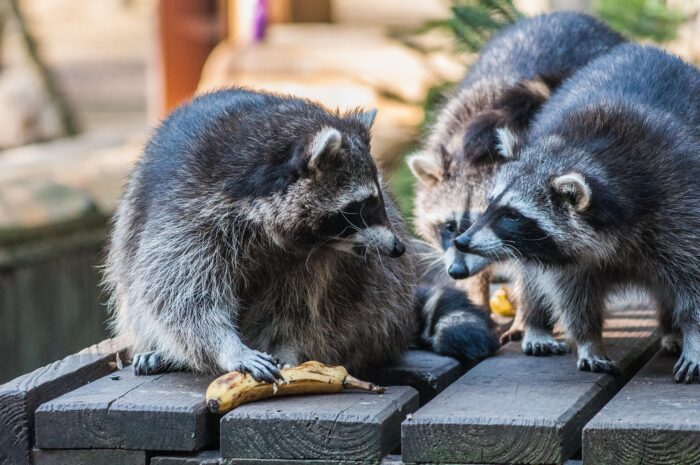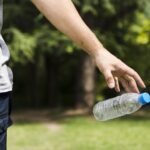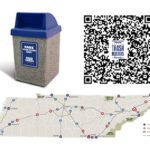
Most of us have lived under a harmful misconception our entire lives. We were taught that if something is biodegradable, we can throw it anywhere—whether in a park, by the roadside, or even while walking in our neighborhood. But this is a major myth. That banana peel is actually a significant problem. It has considerable environmental and safety impacts that make it just as problematic as other types of litter.
Get ready to learn three myths about food waste and why it is actually litter:
- I’m feeding hungry animals!
Reality: Leaving scraps of food outside can lead to serious consequences for wildlife and humans. While your littering may seem good-intentioned, these scraps are very problematic. Animals become dependent on human food, disrupting their natural foraging habits. Raccoons, rats and even larger creatures like bears come to public spaces, and this increases confrontations between humans and animals. When we throw food from a vehicle, the chance of animals coming near or onto roadsides increases. They often face the risk of being hit by passing vehicles, endangering their lives and the lives of drivers.
- Food waste is natural, so it can’t harm our waterways
Reality: Decomposing food can significantly contaminate our waterways in various ways. When food breaks down, it releases harmful nutrients, such as phosphorus and nitrogen, which can leach from food waste into our lakes, rivers, and streams. These substances in excess can lead to toxic algae blooms, which not only change the color and clarity of the water but consume oxygen in the water as they decompose. This process creates dead zones where aquatic life struggles to survive due to depleted oxygen levels, disrupting our marine ecosystems and threatening the wildlife that inhabits them.
- Food Will Break Down, and It’s Good For The Environment.
Reality: It takes up to two years for banana peels to decompose, depending on factors like moisture, temperature, and microorganisms. Nutshells are even more stubborn, requiring more than three years to break down. Orange and other citrus peels take about six months. However, the natural insects that aid in breaking down food and other similar materials tend to avoid citrus peels, meaning they can linger in the environment longer than expected. As a result of these slow decomposition rates, this food waste ends up littering our hiking trails, parks, and neighborhoods instead of breaking down like the litterer intended.
Turn Awareness Into Action
Now that you know the truth, what can you do to keep food waste from becoming litter? Don’t worry, we’ve got you. To keep those pesky scraps from becoming harmful, here are a few ways you can help prevent food waste from becoming litter:
- Dispose of Food Waste Properly: Instead of tossing scraps on the ground, you can throw food waste in any regular trash can.
- Pack It Out: When you know you’ll be somewhere without regular trash cans, like hiking or picnicking, follow the Leave No Trace principles. Bring an extra trash bag and practice the Pack It In, Pack It Out method. Anything that comes in with you comes back out. You can dispose of it as soon as you get home.
- Compost at Home: Composting helps divert food waste from landfills and can also benefit our soil. Things like vegetable and fruit peels, coffee grounds, grass and leaves can be composted into nutrient-rich soil for gardening or landscaping. It’s a win-win!
- Join a Local Cleanup Event: Participating in a cleanup of food waste and other litter from parks and neighborhoods helps our environment and keeps our community beautiful. Plus, it’s a fun way to earn points for Trash Master Rewards!
- Spread Awareness: Help bust the myth of food waste by discussing its environmental impacts with friends and family. Many of us wouldn’t do it if we knew how harmful it is.
Every Action Counts
By recognizing the hidden dangers of food waste and changing our habits, we can protect wildlife, waterways, and our communities. Be part of the solution to keep Tennessee litter-free—because even ‘natural’ waste isn’t harmless.




